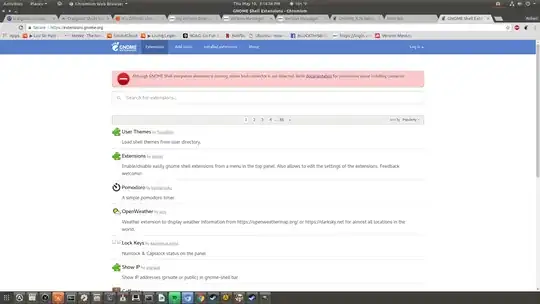I upgraded my Dell Optiplex 9010 to Ubuntu 18.04 from Ubuntu 16.04. None of my GNOME web-browser-extensions (used for managing and installing extensions) work, neither the ones I have installed on Chromium, Chrome, or Firefox.
This has only been the case since my upgrade from 16.04 to 18.04.
This is what I see in every browser I open the URL on:
Although GNOME Shell integration extension is running, native host connector is not detected.
How can I fix this?
